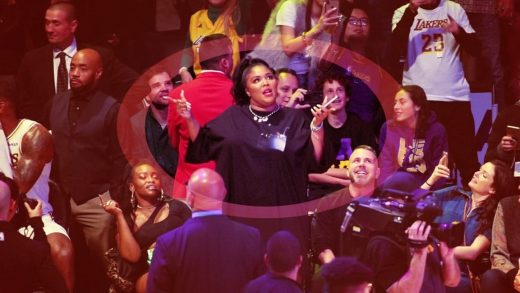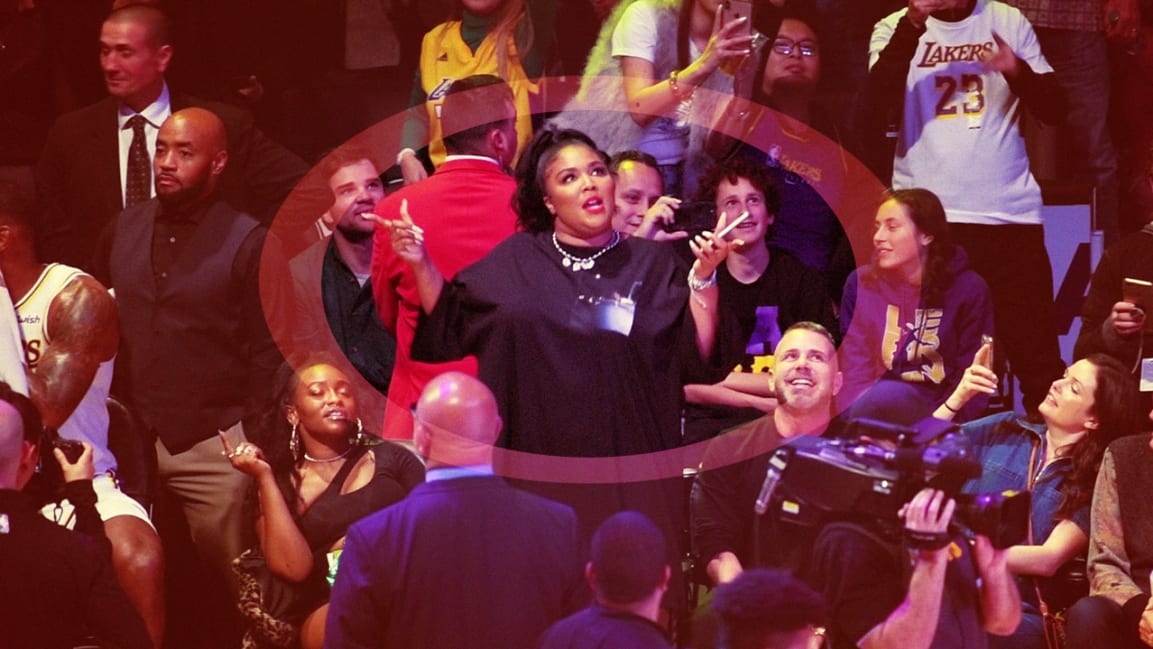Lizzo’s twerking ‘controversy’ proves that she’s cancel-proof—and critics are missing the point
There is no person-of-the-year discussion without bringing up Lizzo.
The flute-playing, twerking singer has had an interesting year, to say the least, and Monday, she spent the day as a trending topic on Twitter—once again.
The “Tempo” singer showed up to a Lakers versus Timberwolves NBA game wearing a black T-shirt with a massive hole cut out of the back, so that her butt in a thong was on full display. When her hit song “Juice” played in the arena, she got up and twerked—an act that caused her to trend in conjunction with Rikishi, the wrestler who is known for smashing his ginormous derriere in people’s faces.
The originator of the Rikishi tweet—and the people who find it funny—are obviously mocking the pop star, but they’re also missing the point: Lizzo’s brand of authenticity has cancel-proofed her 2019.
Lizzo has mentioned in interviews that her mission is to “emote, communicate, and bop,” and she does all three rather prominently. This year, she landed her first number-one hit on Billboard’s Hot 100 Chart; tied with Iggy Azalea for the longest Hot 100 reign for a rap song; twerked on stage at the VMA’s in front of a giant blowup butt; and has delivered several major high-fashion moments from her feathery Met Gala look to her most recent orange poofy AMA’s dress accented by a tiny white purse. The latter outfit spawned meme after meme, the most highly coveted cultural achievement one can attain in the digital age.
However, this year also brought lows. She was accused of plagiarism by four people. She settled with one of them, a woman who accused her of lifting her viral tweet for “Truth Hurts” in a situation that seemed to be a genuine misunderstanding. But Lizzo is suing the other three, claiming they are trying to take credit for her work. She is also being sued by a former Postmates driver for slander in a situation where Lizzo admitted she was at fault for blasting the woman’s photo online (and falsely accusing the woman of stealing her food) rather than privately addressing the matter behind the scenes. Lizzo’s admission of wrongdoing didn’t stop the lawsuit, but she did offer an apology. Authenticity means keeping it real, even when some of those moments aren’t so stellar, and Lizzo owns her mess.
In the age of the spectacle, though, where people become celebrities more for their antics than anything else, Lizzo juggles both talent and excess, which is how she has built such a strong fan base in the first place.
This most recent debate, about Lizzo’s Lakers game outfit, rages between two sets of people. There are those accusing Lizzo of being tacky and inappropriate, and die-hard supporters who think all of Lizzo’s critics are fat-phobic—proof that Lizzo has accomplished another mission. Remember the British Vogue magazine interview where she famously stated, “I’m not trying to sell you me, I’m trying to sell you, you?” She is holding up a metaphorical mirror.
Either Lizzo makes you uncomfortable—and perhaps you should examine why that is—or she inspires you to live your best life, like she does, and that is the point.
Hours after Lizzo’s game-day getup became the topic of discussion, her label, Atlantic Records, tweeted the premiere of the official video for her hit “Good As Hell,” which features Lizzo dancing and prancing with Southern University’s marching band.
That’s Lizzo: on brand, once again.
(69)



